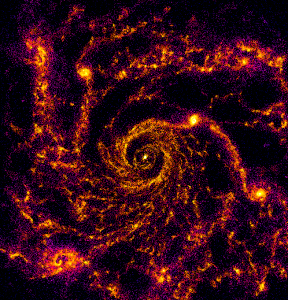Supervisor: Prof. Victor Debattista

(1) Exploring the Milky Way with upcoming large datasets from MOONS
MOONS is an exciting new spectrograph to be installed at the Very Large Telescope in Chile in 2024. The Galaxy Dynamics group has joined the MOONS collaboration and will have access to data from the early data releases. We intend to use these data to understand the evolution of the bar of the Milky Way. Our membership in the collaboration means we will have access to these data before the rest of the community does. Together with data from the European Space Agency’s Gaia satellite this will enable a much more detailed view of the Milky Way than has ever been previously possible.
(2) Euclid, JWST and the demographics of barred galaxies
Euclid is a space telescope that is conducting a large survey of the universe with the goal of understanding the nature of dark energy. The Galaxy Dynamics group has joined the Euclid collaboration with the intention of using the superb imaging of a large number of galaxies to constrain the evolution and nature of barred galaxies. Moreover, the James Webb Space Telescope (JWST), which is revolutionising our view of how galaxies formed, will release comparable datasets which allow us to follow barred galaxies to higher redshifts than has previously been possible. Already JWST has shown that bars were present much earlier than previously thought. In this project we will use these data to explore these large datasets to help us understand barred galaxies better. The results will then be compared with large simulations such TNG50.
If interested, please contact contact Dr. Debattista directly (vpdebattista@uclan.ac.uk) for more
information, or visit the Galaxy Dynamics group webpage http://www.star.uclan.ac.uk/~vpd/.
